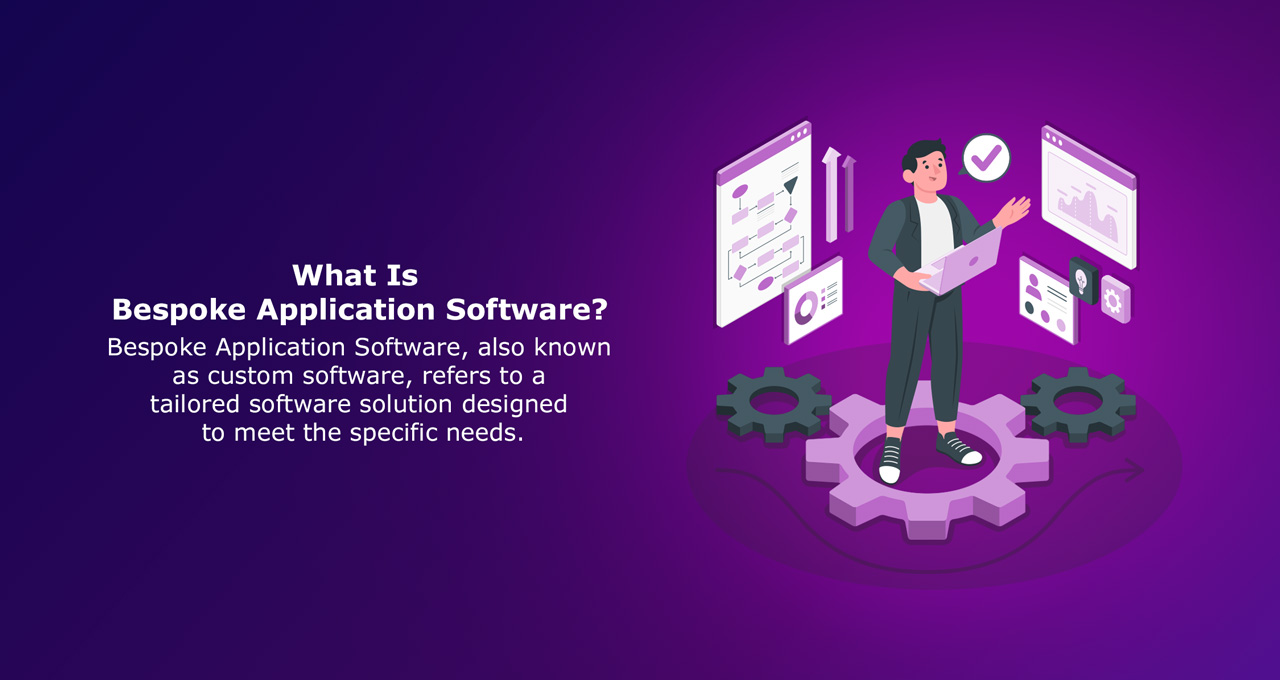
Image Credit: Image by storyset on Freepik
In the rapidly evolving landscape of technology, bespoke application software has emerged as a crucial component for businesses seeking tailored solutions to meet their unique requirements. In this comprehensive guide, we delve into the realm of bespoke application software, exploring its definition, significance, and the process of custom application development.
What is Bespoke Application Software?
Bespoke application software, often referred to simply as custom software, is a type of software specifically developed to address the precise needs of a particular organization or user. Unlike off-the-shelf software solutions, which are pre-designed and mass-produced for a broad audience, bespoke applications are tailor-made to fit the specific workflow, business processes, and objectives of the client.
Significance of Bespoke Application Software
The significance of bespoke application software lies in its ability to provide targeted solutions that align closely with the unique requirements of businesses across various industries. By opting for custom application development, organizations can gain a competitive edge by streamlining operations, enhancing efficiency, and delivering superior user experiences.
Custom Application Development Process
The process of custom application development involves several key stages, each aimed at ensuring the successful creation and implementation of bespoke software solutions.
Requirement Analysis: The initial phase involves in-depth discussions and analysis to understand the client’s needs, objectives, and challenges. This step is crucial for defining the scope of the project and identifying the specific functionalities required in the bespoke application software.
Design and Prototyping: Once the requirements are clearly defined, the next step involves designing the architecture, user interface, and features of the custom application. Prototyping may also be conducted to provide a visual representation of the software and gather feedback for refinement.
Development: With the design in place, the development phase begins, wherein the bespoke application software is built according to the specified requirements. Experienced developers utilize various programming languages, frameworks, and tools to create robust and scalable solutions.
Testing and Quality Assurance: Rigorous testing is conducted throughout the development process to identify and rectify any bugs, errors, or inconsistencies. Quality assurance ensures that the bespoke application software meets the highest standards of performance, reliability, and security.
Deployment and Maintenance: Upon successful testing, the custom software is deployed to the client’s environment. Ongoing maintenance and support are provided to address any issues, implement updates, and ensure the smooth functioning of the bespoke application software.
Bespoke application software, also known as custom software or tailor-made software, is a specialized solution designed to meet the specific requirements of an individual organization or user. Unlike off-the-shelf software, which offers generic functionality to a wide audience, bespoke applications are developed from scratch to cater to the unique needs and preferences of the client.
Custom application development involves a collaborative process between the client and the development team, starting with a thorough analysis of requirements and culminating in the delivery of a fully customized software solution. By harnessing the power of bespoke application software, businesses can optimize their operations, improve productivity, and gain a competitive advantage in today’s dynamic market.
In conclusion, bespoke application software plays a pivotal role in empowering businesses to achieve their goals and objectives through personalized software solutions. By investing in custom application development, organizations can leverage technology to address specific challenges, enhance efficiency, and drive innovation in their respective industries.
Through meticulous planning, strategic development, and continuous support, bespoke application software enables businesses to adapt to changing market dynamics, capitalize on emerging opportunities, and stay ahead of the competition. As the demand for tailored software solutions continues to grow, bespoke application software remains a cornerstone of digital transformation and organizational success.
Frequently Asked Questions (FAQs) about Bespoke Application Software and Custom Application Development
Bespoke Application Software, also known as custom software, refers to a tailored software solution designed to meet the specific needs and requirements of a particular organization or user. It is developed from scratch, ensuring a personalized approach that aligns with unique business processes and objectives.
Bespoke Application Software is custom-built to address the unique needs of a specific client, offering tailor-made functionalities. In contrast, off-the-shelf solutions provide generic features intended for a broader user base without the ability to cater to individualized requirements.
The significance of Bespoke Application Software lies in its ability to provide targeted and efficient solutions. By opting for custom application development, organizations can streamline operations, enhance productivity, and gain a competitive edge by having software that precisely fits their workflows.
The custom application development process involves several key stages: requirement analysis, design and prototyping, development, testing and quality assurance, and deployment and maintenance. These stages ensure the creation of a robust, scalable, and personalized software solution.
Bespoke Application Software offers a tailored approach, ensuring that the software aligns perfectly with the unique needs and processes of a business. This customization leads to increased efficiency, improved user experiences, and a competitive advantage in the market.
Investing in Custom Application Development provides businesses with solutions that are specifically crafted to address their challenges and opportunities. The benefits include increased operational efficiency, better scalability, and the ability to adapt to changing business requirements.
Yes, Bespoke Application Software can be designed to integrate seamlessly with existing software and systems. This ensures a smooth transition and allows businesses to leverage their current technology investments while gaining the advantages of a custom solution.
The timeline for developing Bespoke Application Software varies based on the complexity of requirements and features. A detailed analysis during the initial stages helps in defining the project scope and estimating the development timeline.
Yes, bespoke application development projects typically include ongoing maintenance and support. This ensures that the software remains up-to-date, secure, and aligned with any evolving business needs.
Bespoke Application Software is versatile and can be beneficial for various industries, including finance, healthcare, manufacturing, and more. Any sector with unique business processes and requirements can leverage custom software for optimized operations.
In summary, Bespoke Application Software, with its custom-tailored approach, stands as a strategic choice for businesses aiming to enhance their operations, stay competitive, and adapt to the ever-changing technological landscape. Through the custom application development process, organizations can harness the power of technology to meet their specific needs and achieve long-term success.

